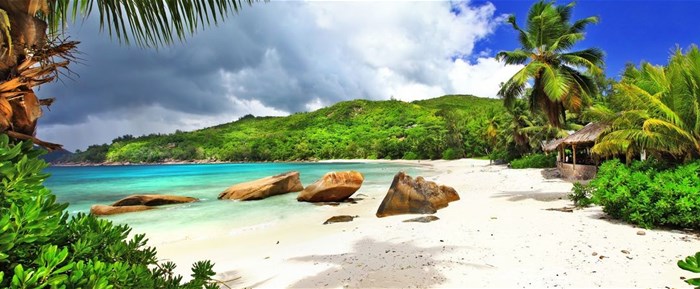
In many ways, the Seychelles has long since been at the forefront in protecting its environment against the possible adverse effects that can come as a result of tourism. Despite its small size, the island destination has actively been working to manage its tourism development with due regards to the environment. From reducing, reusing and the recycling of waste materials to actively promoting sustainable living to both residents and visitors, Seychelles Government and Environmental NGOs are doing its share to protect the environment.
Probably one of the most fascinating developments, although not directly linked to conservation, is that, apart from 18 pre-approved hotel developments, the Seychelles government has banned large hotel developments indefinitely in what has been coined the ‘moratorium on large hotel developments’.
The moratorium on large hotel developments was initially seen as a movement in favour of Seychelles’ economy, but has since played favourably into its many conservation efforts.
While the idea behind the moratorium was not to halt the development of all projects completely, it was implemented to encourage the construction of smaller locally owned resorts, reflecting Seychelles’ Creole architecture and culture. Perhaps a better understanding of this is that the Seychellois have a monopoly on hotels and resorts of up to 15 rooms or villas with this segment strictly reserved for local investors into the hospitality industry. Thus, putting the business back in Seychellois hands.
However, with more than half of the Seychelles’ land area and also a large section of the ocean surrounding the islands set aside for conservation, the moratorium has also proven to be instrumental in preserving the natural veracity of many of the untouched and natural areas and resources the Seychelles has to offer.
Despite growing tourism numbers, the moratorium also hinders the possibility that the Seychelles will become and overdeveloped mass tourism destination, leaving future visitors with an authentic and true island destination.
In the beginning of June, a group of citizens who call themselves the Grand Police Citizens Initiative, were victorious following an intense campaigning to stop the construction of the proposed Grand Police Bay hotel in Takamaka, a district in the south of Mahé.
Although the hotel project was initially part of the 18 new tourism establishments excluded from the moratorium on the construction of large hotels, the Citizens Initiative took every effort to ensure public concern was raised on the project.
An earlier biodiversity assessment of the Grand Police showed that this specific location is considered an international key biodiversity area (KBA). It is flanked by two other key diversity areas on the hills of the Collines du Sud which are currently being merged. It is also a freshwater wetland and home to two species of endemic, critically endangered and nationally protected terrapins Torti Soupap as well as being a potential foraging area for sheath tail bats.
The group launched a comprehensive campaign on social media to gather public opinion to strengthen its cause and also organised a march and launched a petition, whereby over 7,500 signatures were acquired and submitted to the head of state. After meeting with Seychelles’ President Danny Faure, the acquired evidence and petition was submitted to cabinet ministers who agreed that steps are taken to have the section of land returned to the government and be declared a protected area.